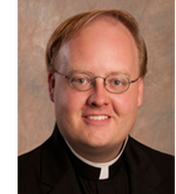|
We are continuing our examination of the Sacrament of Marriage in light of the Marriage Ritual. If you recall, last time we looked at the matter and form of the sacrament and examined the first part of the marriage ritual which contains an instruction on what the sacrament is and what it accomplishes. The next part of the ritual is comprised of three questions which call the couple to affirm that their understanding of marriage is what the Church understands by marriage. The Questions Before the Consent are three, the first is “have you come here to enter into Marriage without coercion, freely and wholeheartedly?” The couple then responds, “I have.” This first question points out a fundamental truth about marriage – no one can be forced into it, it must be freely chosen. We may think of this merely as if someone were “kidnapped” and forced into marriage, however, the question is referring to a number of circumstances that may propel or coerce someone into marriage. These can be many and varied, the point of the question though is to establish that the couple is freely and willingly making this commitment. A forced commitment – a forced vow in this case – could never be the basis of a sacrament.
The second question is now asked, “Are you prepared, as you follow the path of Marriage, to love and honor each other for as long as you both shall live?” The couple responds, “I am.” This question reminds the couple that marriage is something which calls for love and the deepest respect for the spouse – their lives together should be rooted in that love and upon that respect and honor in which they hold each other. We have all probably encountered couples that do not seem to respect or honor each other and do not even appear to love each other very much, that is, in the end, a diminution of what marriage is meant to be. The second part of the question establishes that marriage is something which is permanent and that the marital bond lasts while both spouses are living. This is important to keep in mind, especially in our culture which seems to have made divorce an everyday occurrence. Marriage is something sacred, it is a bond that is sealed by the Lord Himself and so nothing can break it. The final question is, “Are you prepared to accept children lovingly from God and to bring them up according to the law of Christ and his Church?” The couple then responds, “I am.” Marriage has two primary ends, one is unitive, the other is procreative. The unitive end of marriage is summed up in the second question when it speaks about a couple that honors and loves one another. That love and honor unites them together in marital intimacy. The third question refers to the procreative end – the openness to children. Marriage is fruitful and the primary fruit of marriage is the gift of children. That does not mean that a marriage where the spouses are incapable of having children is not a real marriage, it is, its fruitfulness if exhibited in other ways. But, in both cases, a sacramental marriage is one that is open to the transmission and gift of life at all times and in all seasons. This explains the Church’s position on artificial contraception – the marital act without the openness to life is lacking in something fundamental – namely, the openness to bearing fruit as God intends it. The marriage ritual now moves to The Consent itself – the vows. We will examine that consent in our next article. (This article is part of a series of articles on The Sacraments which will appear in the bulletin over the course of this year.) Comments are closed.
|
Fr. PeterArchives
June 2023
Categories |
Join us at MassSaturday at 4pm;
Sunday at 7:30am, 9:00am, 10:30am Daily Masses: Monday-Friday 6:30am Tuesday/Friday 8::00am (school days only) Saturdays 8:00am Sacrament of Reconciliation |
|


 RSS Feed
RSS Feed
